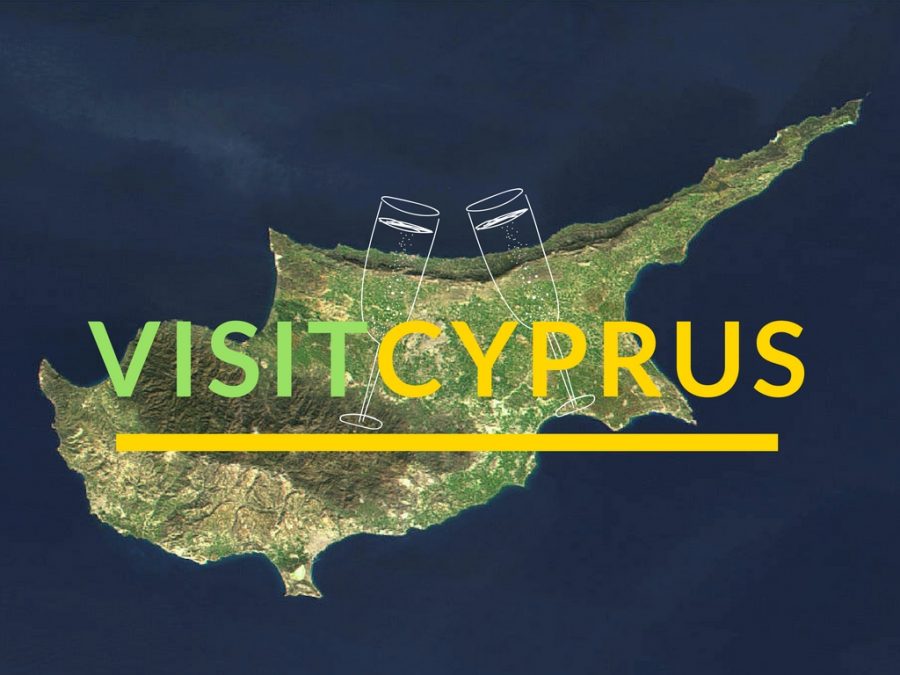George Kassianos: The Godfather of Cypriot Wine
Reading Time: [est_time] George Kassianos is the president of the Cyprus Sommelier Association and the operations manager at Annabelle Hotel in Paphos, Cyprus. In February, together with Cyprus Tourism Organisation, Mr Kassianos put together a two-week long wine trip

Reading Time: 5 minutes
George Kassianos is the president of the Cyprus Sommelier Association and the operations manager at Annabelle Hotel in Paphos, Cyprus. In February, together with Cyprus Tourism Organisation, Mr Kassianos put together a two-week long wine trip for us to research Cypriot wine and explore the culture of his motherland. In this interview, he shares with us about the past, present, and future of the wine from this special Aphrodite’s island.

- Thank you for taking the time to do this interview. Can you tell us about your background pertaining to wine?
It started in London when I was studying the oenology part of a Hotel Management course. I decided to learn more about wine by participating in Master Sommelier courses. I started working as a sommelier in 92 Park Lane, a two Michelin-starred restaurant in London. My hotel career began at Annabelle Hotel as an Assistant Food & Beverage Manager. The wine culture started there back in the 90s. Although I left Annabelle in 2005, I came back as the Operations Manager in 2012, a position I still hold today. In 2008, I became the President of the Cyprus Sommelier Association. We currently have the opportunity to host the ASI “Best Sommelier of Europe” competition.
___________________________
“Wineries need to move toward maintaining their own vineyards. Investing in young, educated winemakers and viticulturists should be a priority.”
___________________________
- Tell us more about the history of Cypriot wine.
The history of winemaking in Cyprus can be traced back to 6,000 years ago. In 2005, a team of archaeologists concluded that the wine jars that were discovered in Erimi in the 1930s were the oldest of their kind in the world dating back to 3,500 BC. This suggests that the first wines of the Mediterranean area were produced in Cyprus, long before the existence of the Paphos mosaics that depicts Dionysus, the god of wine. It is believed that the Egyptians and Phoenicians brought wine to Cyprus, but it was the Greeks that developed winemaking on the island. The sweet wine of Cyprus called Nama was praised by Homer and Hesiod. The wine was popular during the Roman period too with references from visitors and historians.
In the past, there were not many references to winemaking in Cyprus. This all changed when the Crusaders came to Cyprus in the 12th century. They increased the production of Nama and renamed it ‘Commandaria’. It became the most sought-after wine in Europe and a valuable export commodity for the island. It flourished under the Lusignan and Venetian rule and was heavily exported.
Wine production suffered under the Ottomans. Heavy taxation to vineyard owners and wine production resulted in the destruction of many vineyards. British occupation in 1878 brought a revival to the winemaking industry. The largest wineries of the island—EKTO, KEO, SODAP, and LOEL—were founded after this time.
Cyprus was never affected by phylloxera, Consequently, the demand for Cyprus’s grapes and wines combined with the relatively high prices resulted in a mini boom for the industry. Further demand in the early 20th century came from local consumption and from the regional forces of Britain and France in the Middle East. Cyprus was producing good-quality cheap wine and brandy, and the big four companies prospered as a result. The next big export product came in the form of Cyprus Sherry. Cyprus was exporting millions of liters to the UK and the Soviet Union during this time.
The 20th century brought the protection of the Sherry name and the collapse of the Soviet Union. This devastated the local wine industry in the 1990’s. In response to the challenges faced by the industry, the Cyprus Vine Products Commission began its efforts to overhaul the sector in order to help it survive. Reforms were intended to improve the quality rather than quantity of wine. Three initiatives were launched:
- New international varieties of grapes were introduced and financial incentives were given for their cultivation. The varieties introduced were considered more suitable for quality wine production and more palatable to overseas markets. This led to the pulling of many local grapevines.
- Incentives were given to create small regional wineries with a production capacity of 50,000 to 300,000 bottles per year. This was intended to promote better quality wines by reducing the distance grapes have to travel from vineyards to wineries. The big four wineries were located in the large port cities of Limassol and Paphos, so vine growers were forced to transport their grapes for miles in the summer heat. Often, the fermentation process had already begun during transport. This also helped maintain the village population in the vine-cultivating regions.
- A new Appellation of Origin system was launched in 2007.
___________________________
“Euripides called it the ‘Cyprus Nama,’ the nectar of gods.”
___________________________
- Cyprus wine industry has come a long way. What does it need in order to move forward?
The future lies on Cyprus’s indigenous varieties. Cyprus needs more white wine varieties like Spourtiko, Promara, and Morokanella. The reds Maratheftiko and Yiannoudi show promise. We need to aim more in the €5 to €15 bracket and avoid the low-cost wines. Wineries need to move toward maintaining their own vineyards. Investing in young, educated winemakers and viticulturists should be a priority.
- And what inhibits the progress of the Cyprus wine industry?
Here are a few things that I’ve noticed. The imported wines are better and cheaper in some cases. The vineyard situation; many vines have been uprooted. Existing vineyards required high cost to maintain and there are too many owners due to inheritance laws. On top of these, no one wishes to work in the vineyards anymore. The high cost of production and labor is a concern. This affects the competitiveness of Cyprus wines abroad. In addition to these, many wineries have no successors and are sold to foreign entrepreneurs. This obviously doesn’t contribute to the development of winemaking tradition.
- What is the most famous wine of Cyprus?
It is Commandaria, a delicious dessert wine with natural amber-honey color. It is the oldest wine in Cyprus and—thankfully—still in production today. This unique wine is produced from mature, sun-dried grapes of the varieties called Xinisteri and Mavro, and then aged in oak for a minimum of two years. Commandaria is produced in only 14 villages located on the slopes of the Troodos Mountains. The beginning of this wine is said to date back to the time of the ancient Greeks, 4,000 years ago, when it was a popular drink at festivals that celebrated the goddess of Love and Beauty, Aphrodite. Euripides called it the ‘Cyprus Nama,’ the nectar of gods. The name ‘Commandaria’ however dates back to the crusades in the 12th century. It was greatly enjoyed at the wedding of Richard the Lionheart and he pronounced it as “the Wine of Kings and the King of Wines”.
- What was your first Cypriot wine?
Of course, it was Commandaria. It was the only Cypriot wine I was proud of in the early 80s. When I came back to Cyprus in 1989, the KEO Heritage (the first Maratheftiko) and Ayios Andronicos (the first Xynisteri/Xinisteri from high-altitude vines) drew my attention. After tasting those wines, I knew that Cyprus wine has a great future.
- We love Xynisteri wine made from high-altitude grapes too. What is your favorite food and wine pairing?
My favorite of recent memory was grilled sea bass with red wine sauce and aubergines paired with a Peter Lehmann Shiraz 2001 from Barossa (Australia) and a Makkas Syrah 2007 (Cyprus) in a Riedel Riesling glass at 16°C.
- That’s a great pairing! It must be interesting to see how the Cypriot Syrah shows up next to a big-name Shiraz from Barossa. What can Cyprus offer that other wine countries can’t?
The uniqueness of its indigenous grapes and excellent sweet wines.
Annabelle Hotel, Paphos, Cyprus
Play the video below to check out some of the highlights of the evening:
Related
Vouni Panayia: Confidence in the Cypriot Wine Grapes
Your Cheat Sheet to the Wines of Cyprus, Part I
Facing Our Fears: Cypriot Wine
Stay tuned to our website for more in-depth articles and videos on the Cypriot wine scene.
Disclaimer: Our trip was partially sponsored by the Cyprus Tourism Organisation, The Annabelle Hotel (Paphos), and Saint Elena Hotel (Larnaca). A few wineries provided us tasting samples, but most of them simply gave us their time. The opinions expressed in this article are our own and we are under no obligation to give favorable reviews.

